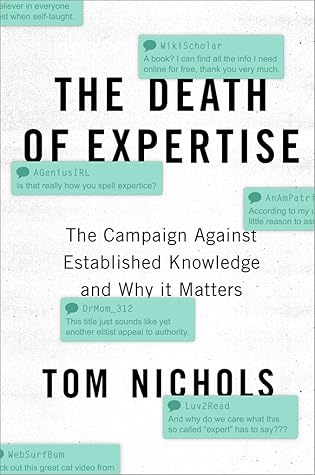This kind of Internet grazing—mistakenly called “research” by laypeople—makes interactions between experts and professionals arduous. Once again, confirmation bias is a major culprit: although many stories on the Internet are false or inaccurate, the one-in-a-billion story where Google gets it right and the experts get it wrong goes viral. In a tragic case in 2015, for example, a British teenager was misdiagnosed by doctors who told her to “stop Googling her symptoms.”10 The patient insisted she had a rare cancer, a possibility the doctors dismissed. She was right, they were wrong, and she
...more
Welcome back. Just a moment while we sign you in to your Goodreads account.


